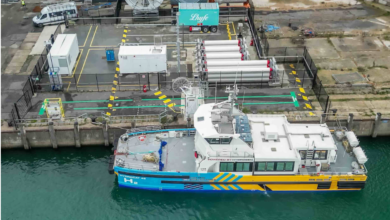DG Fuels signs offtake agreement with Air France-KLM
Water electrolysis for green hydrogen supply is sourced mostly from byproduct water created by the rest of DGF’s fuel production process and powered by renewables.

DG Fuels will supply Air France-KLM with 210 million gallons of Sustainable Aviation Fuel, lasting for a minimum of 10 years, with delivery expected in 2026.
HydrogenPro will supply its green hydrogen technology with at least 839 MW capacity for DG Fuels’ initial production plant in Louisiana, USA.
On a 10-year basis, Air France-KLM emissions are expected to be reduced by 4.7 billion kilograms of CO2 compared with fossil fuels.
Decarbonisation is the biggest challenge facing the aviation industry, and gaining a first-mover advantage in using Sustainable Aviation Fuel (SAF) is critical to reducing emissions and taking part in the incumbent decarbonisation.
SAF can reduce emissions by an average of 80% compared to conventional fuel and is considered more energy efficient. Hence, it provides airlines with operational advantages and environmental contributions. This Offtake Agreement adds to the slate of recent SAF contract volumes. It represents over 90% of total production volumes at DG Fuels Louisiana.
HydrogenPro is proud to play a vital role in supplying DG Fuels with its green hydrogen technology.
Richard Espeseth, the founder of HydrogenPro, said, “This offtake agreement is yet another important milestone for DG Fuels, and of equal importance to HydrogenPro as technology supplier. We are proud to play an active role globally in decarbonising the future.”
Michael C. Darcy, CEO of DG Fuels, said, “We are proud to take this next long-term step alongside Air France KLM in supporting the lasting sustainability of our planet by reducing the impact of airline travel on the environment.”
Christopher J. Chaput, President and CFO of DG Fuels, said, “With this agreement Air France and KLM now join DGF’s three other disclosed and undisclosed launch customers under binding agreements totaling over 130 million gallons per year.”
